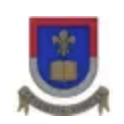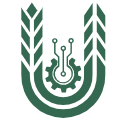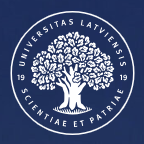Detailed introduction of Latvian Maritime Academy:
Introduction and Overview
The Latvian Maritime Academy is the only institution in Latvia that provides formal higher maritime vocational education and training, mainly training professionals for the maritime industry.
History and Establishment
The roots of its maritime education can be traced back more than 200 years ago, when the first maritime school in Riga was established in 1789. On October 1, 1989, the Latvian Maritime Academy enrolled its first students as part of the Kaliningrad Fisheries Academy, so 1989 is regarded as its founding year. On July 25, 1990, it became a college of Riga Technical University, and on January 8, 1993, the Latvian Maritime Academy became a completely independent educational institution.
School Strength
Teaching Staff: In the 2017-2018 academic year, the academy has 36 academic staff who have rich teaching and practical experience in the maritime field and can provide professional guidance and training for students.
Teaching Resources: The academy is equipped with advanced professional teaching equipment such as navigation simulators and engine simulators to meet the needs of students' practical operations. In addition, the academy's library has a rich collection of maritime professional books, journals and electronic resources, which provides strong support for students' learning and research.
International Cooperation: Actively participate in international exchange and cooperation projects, and is a member of Erasmus + As one of the participants of the program, the school has established student exchange cooperation with many foreign institutions such as the Estonian Maritime Academy, Pir Reis University, and Gdynia Maritime University, providing students with broad international exchange and learning opportunities.
Institutional nature
Public higher education institution.
Educational philosophy
Aims to provide students with a balanced development of academic education, professional training and practical skills, so that students can meet the wide needs of the maritime industry, cultivate high-quality seafarers in technical fields such as navigation, marine engineering, ship electrical automation, port management, etc., and also train officers for the Latvian Navy.
Key laboratories and disciplines
Key disciplines: The key disciplines of the college include navigation, marine engineering, ship electrical automation, port and shipping management, etc. These disciplines are closely combined with the actual needs of the maritime industry and have strong practicality and pertinence.
Key laboratories: No clearly named key laboratories were found in the college, but from the perspective of its professional settings and teaching resources, its professional teaching venues such as the navigation simulator laboratory and the marine simulator laboratory can be regarded as key teaching practice venues, providing students with a practical operation environment close to real scenes, which helps to improve students' practical operation ability and ability to deal with emergencies.
Department Settings
Undergraduate Department: There are four majors, including Marine Transport - Electrical Automation, Marine Transport - Marine Engineering, Port and Shipping Management, and Marine Transport - Navigation, all of which award professional bachelor's degrees with a duration of 4 years and 3 months.
Graduate Department: There is a professional master's degree program in marine transport with a duration of 1.5 years.
Ranking
The specific ranking of the school in the comprehensive ranking of international authoritative universities has not been found, but as the only higher education institution of maritime majors in Latvia, it has a high reputation and influence in the field of maritime education in Latvia and the Baltic Sea region.
Expenses
Undergraduate: 6180 euros/year for non-EU students and 3240 euros/year for EU students.
Master: Non-EU students 6920 euros/year, EU students 2652 euros/year.
Campus
Campus location: Located in Riga, the capital of Latvia. Riga is one of the important cities in the Baltic region. It has rich historical and cultural heritage and good urban facilities, providing convenient conditions for students' study and life.
Campus facilities: The campus has modern teaching buildings, libraries, laboratories, student dormitories, restaurants and other infrastructure, providing students with a good learning and living environment. In addition, the school is also equipped with advanced information technology facilities to meet the needs of teaching and learning.
-

Riga Technical University
-

Riga Stradins University
-

Baltic International Academy
-

Daugavpils University
-

Latvia University of Life Sciences and Technologies
-

Latvian Maritime Academy
-

Ventspils University of Applied Sciences
-

Vidzeme University of Applied Sciences
-

Jazepa Vitola Latvian Academy of Music
-

University of Latvia
-

Mesoamerican University
-

Istmo University
-

Mariano Galvez University of Guatemala
-

Regional University of Guatemala
-

Galileo University
-

Francisco Marroquín University
-

Rafael Landívar University
-

University of the Valley of Guatemala
-

University of San Carlos of Guatemala
-

Technological Institute of Tlaxcala Plateau
-

Golfo University
-

Technological University of South Sonora
-

Technological University of Huejotzingo
-

Tizimín Institute of Technology
-

Chilpancingo Institute of Technology
